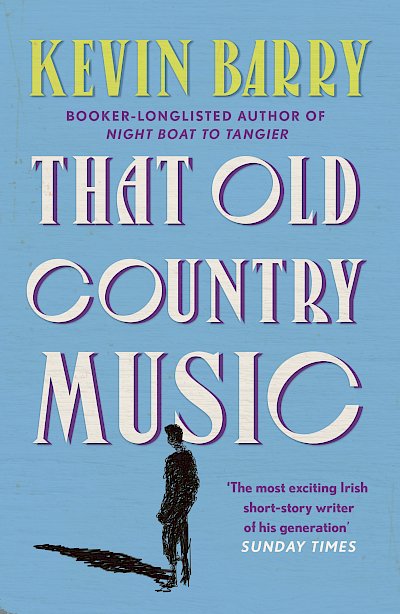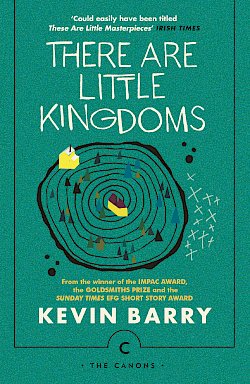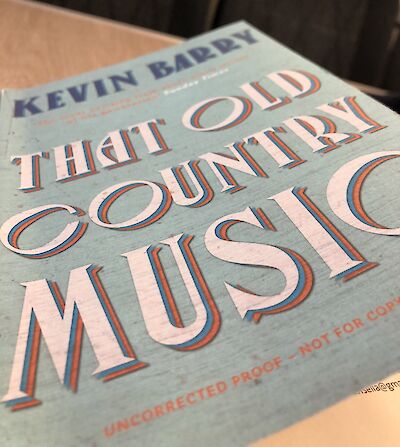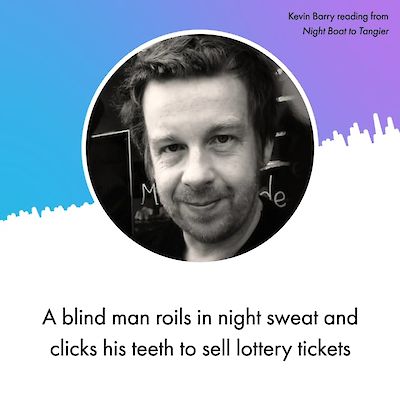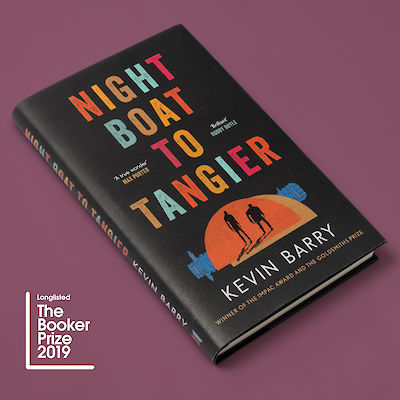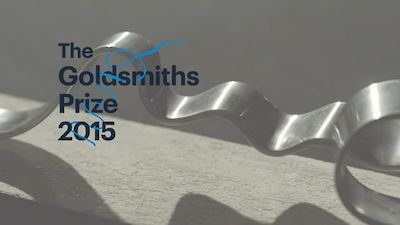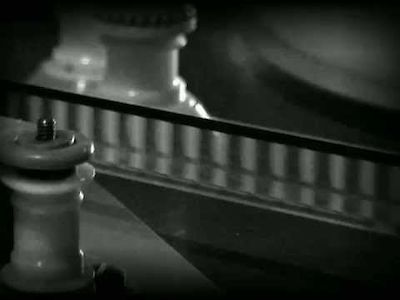Kevin Barry
Kevin Barry is the author of the novels Beatlebone, City of Bohane and Night Boat to Tangier and the story collections Dark Lies the Island and There Are Little Kingdoms. His awards include the IMPAC Dublin Literary Award, the Goldsmiths Prize, the Sunday Times EFG Short Story Prize and the Lannan Foundation Literary Award. His stories and essays have appeared in the New Yorker, Granta and elsewhere. He also works as a playwright and screenwriter, and he lives in County Sligo, Ireland. In 2019, Night Boat to Tangier was longlisted for the Booker Prize.
“The slow hours of the afternoon yawned and presented themselves with a certain belligerence. Those who go mad go mad first in the afternoons”
Kevin Barry adoringly reviewed in the Guardian by Sandra Newman:
“Barry’s books are known for their stylistic brilliance, and The Heart in Winter is no exception. Terse and acrobatic, the novel effortlessly walks the line between goofy and gothic. Almost every sentence is quotable. It’s woven from plain-spoken lyricism (“the last winter days went by like weary brokedown soldiers at the end of a war”) and jokes that are at once subtle and silly (“Tom Rourke salted the eggs unambiguously”)… I doubt that anyone will publish a novel this year that is at once so beautiful, so lovable and so much fun.”
Sandra Newman
Guardian

“You should read this collection at least twice. The first time, horse it into you—then study the technique.”
Naoise Dolan reviews That Old Country Music in The Stinging Fly.
The Stinging Fly
“Attraction as physical catastrophe was not exactly news to Seamus Ferris. He had been besotted before.”
‘Would you say there’s any end in sight, Charlie?’ Two fading Irish gangsters are waiting on the boat from Tangier. A lover has been lost, a daughter has gone missing… The Booker-longlisted Night Boat to Tangier by Kevin Barry is out now in paperback.
Night Boat to Tangier – one of the New York Times’ ten best books of the year
“A desolate ferry terminal on the Spanish coast isn’t a place where you’d expect to encounter sharp-edged lyricism or rueful philosophy, but thanks to the two Irish gangster antiheroes of Barry’s novel, there’s plenty of both on display, along with scabrously amusing tale-telling and much summoning of painful memories.”
Night Boat to Tangier by Kevin Barry has been named one of the ten best books of 2019 by the New York Times.
5 questions for Kevin Barry

“Annie Dillard said once that the only advice any writer needs is to keep your overheads low. In our present epoch, this means you have to be very, very careful about where you choose to live. I live cheaply in the rural north west of Ireland and this means I don’t have to teach, I can just write. The city as an entity really doesn’t want anything to do with writers anymore—we’ve been priced out, as have all creative people except those from backgrounds of privilege. So screw the city—it’s the city’s loss.”
Kevin Barry, author of Night Boat to Tangier, answers five questions on writing and its obstacles over at Literary Hub.
Literary Hub
The Financial Times have been enjoying the audiobook of Night Boat to Tangier read by Kevin Barry himself:

“Barry is a marvel: menacing, insistent, switching from brooding descriptions of the men’s nocturnal surroundings to their terse dialogue. The conviction with which he explores their search for Charlie’s missing daughter never fails.”
Financial Times
“Barry, winner of the Impac Dublin literary award for City of Bohane and the Goldsmiths prize for Beatlebone, is a clairvoyant narrator of the male psyche and a consistent lyrical visionary. The prose is a caress, rolling out in swift, spaced paragraphs, a telegraphese of fleeting consciousness…”
Alan Warner reviews Night Boat to Tangier in the Guardian.
‘As quick-witted as a stand-up comic and as serious as the best of them tend to be, Kevin Barry is not only an inspired blend of Flann O’Brien and Anthony Burgess, he is an original.’
Eileen Battersby
The Irish Times
‘As Barry follows John’s strange journey, the boundaries between fact and fiction, author and subject, past and present morph. Dark, trippy and comic, Beatlebone is a heady exploration of creativity and identity’
Francesca Wade
The Telegraph
‘If the novel loses innovation it’s f****d’: Beatlebone wins the 2015 Goldsmiths Prize.
Goldsmiths Prize
gold.ac.uk
“He is so many miles from love now and home. This is the story of his strangest trip”
‘Books like this come along once in a generation … It all hangs together perfectly to form the kind of next-level literature that inspires, even incites another generation of natural-born wordsmiths to write big and bold and put in the work it takes to become a beast.’
Steve Earle
The New York Times

